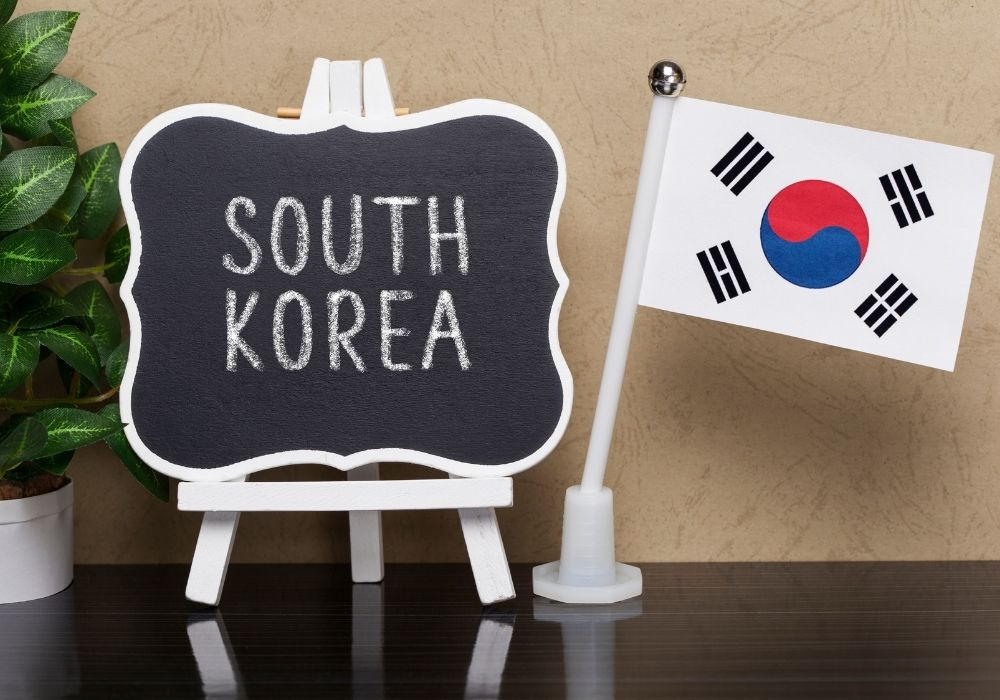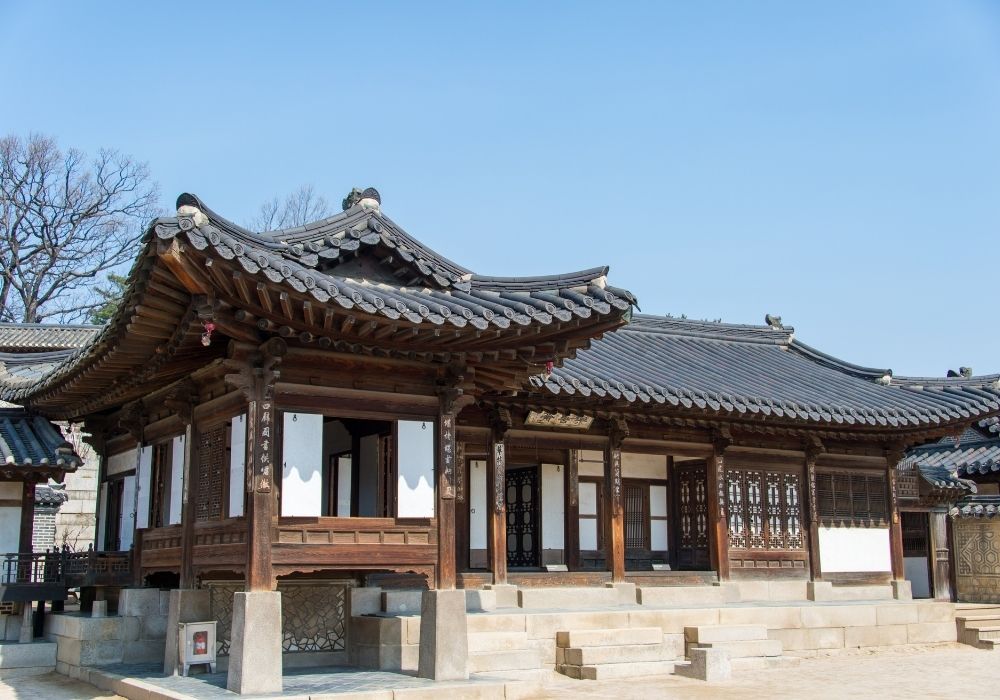Teaching English in South Korea will change your life. You’ll be immersed in a fascinating culture. You’ll discover new and exciting opportunities for travel. You’ll learn about Korea, and you’ll learn about yourself.
You’ll certainly make decent money when you teach English in Korea — to travel with, to pay off a student loan, or to save and bring home so you can begin yet another exciting endeavor.
You might even enter into a lifelong career. Some people teach in South Korea for one year and never teach again. Others use teaching English in Korea as a starting point for teaching in other countries and at different types of schools.

That’s how it was for me. My first job after graduating from university was at an English teaching job at a Korean hagwon — a private kindergarten and after-school academy for elementary, middle, and high school students.
For me, it wasn’t only a fun and financially rewarding adventure, but it set me on a career path that led to teaching in four countries and many different types of schools, including universities.
Note: if you’re interested in teaching Korean students, but aren’t keen to move to South Korea, have a look at this article: Teach English to Korean Students Online (7 Companies That Pay). If you’d like to teach Chinese students online and earn $22- $26/hour, consider Magic Ears, or VIPKID.
Teaching English in South Korea isn’t for everyone. But whether you love it or hate it, it’ll be a year you never forget.
Why Teach English in South Korea?
I often ask my university students what they want to do after they graduate. By far, the two most common answers are to find a job and to travel the world.
Teaching English in South Korea ticks both of these boxes. It’s hard to find a job when you’re fresh out of university and don’t have experience, especially if you have a liberal arts degree in something like English (like I do).
Fortunately, many English teaching jobs in Korea don’t require experience, and it doesn’t matter what your bachelor’s degree is in, only that you have one.
Salaries are good, and because most contracts include housing and airfare, you’re able to explore a distant part of the world while saving money at the same time.
Also, it’s a good way to try out teaching if you’re not sure that you’ll like it or be any good at it. Teaching children in Korea at a hagwon doesn’t require expert knowledge of English grammar or teaching techniques, just enthusiasm, an open mind, and a whole lot of patience.
You can learn how to be a teacher on the job, and you can teach yourself grammar as it becomes necessary. (Children usually need much more speaking practice than grammar explanations anyway.)
If you find that after one year, teaching really isn’t for you, you’re free to leave and try something else.
On the other hand, if you really enjoy teaching, you can sign up for another year. And there’s always the possibility to find another job in a different type of school, perhaps in another part of South Korea or even another part of the world.
Later on, in order to have access to better jobs, you can get a TEFL/TESL certificate, which is a requirement for many better English teaching jobs, or get a master’s degree in education, which is a typical requirement for university teaching jobs.
And of course, there’s more to the experience of teaching English in South Korea than the job itself.
Travel in Asia
If you’ve ever dreamed of the white sand beaches of Thailand, the nighttime neon alleyways of Japan, or the towering scroll-painting mountains of China, then teaching in Korea means that you’re only a short flight away.
Some English teaching jobs in Korea offer long vacations, such as up to four months a year (two months twice a year) at universities.
Hagwons usually only offer two one-week holidays a year, but once your contract is over, you can spend some of your hard-earned savings on a long journey in any part of Asia — or the world — you choose.
Domestic Travel
Besides other countries in Asia, South Korea itself is a tremendous place to travel in. You can get to any corner of the country by bus or high-speed train, which means that each weekend holds the possibility of adventure. There’s also some excellent hiking in South Korea as well.
Add to this the numerous Korean holidays that you’ll receive as days off from work, and you can see a good deal of the country in short trips. Teaching in South Korea makes this possible. Not to mention, there are numerous things to do in Seoul to keep you busy.
Culture
When you teach English in Korea, you won’t only be teaching, but also learning. Korean culture is ancient, multifaceted, and full of surprises.

In your free time, you can practice tae kwon do, learn a traditional musical instrument, or study the Korean language. (I did all three of these when I was in Korea, but only the first two with any real success.)
Basically, living and teaching in South Korea is a lot of fun. The country has friendly people, remarkable food, bustling nightlife, and leisure activities like sweating in saunas and singing karaoke in small private rooms called norebong.
You might even be able to engage in all of these activities within the same large building where your hagwon is located, meaning you can go straight from work to the restaurant, to the all-night norebong, and finally to the all-night sauna.
Types of Schools to Find Teaching Jobs in Korea
The types of schools where you can teach English in Korea include private English academies (called hagwons), public and private grade schools, and universities.
Hagwons
These small, after-school academies are a big business in Korea. Nearly all Korean schoolchildren visit one or more hagwons during the week to study martial arts, a musical instrument, math, English, or practically anything else you can imagine.
I worked at an English hagwon in South Korea, and it was a wonderful experience. Monday to Friday, I taught kindergarten during the day and early afternoon, and then I taught elementary, middle, and high school students later in the afternoon, once their regular schools had gotten out.
These are some of the most common and available teaching jobs in South Korea. They’re the best option for people without teaching experience. For many hagwons, only a bachelor’s degree is necessary — not even a TESL certificate.
The pay is good, but the hours are long and sometimes inconvenient, with classes often scheduled on weekends or early in the morning and late in the evening.
Hagwons typically provide furnished housing and two one-week vacations per year, plus all the Korean holidays. Contracts are almost always for one year, with the possibility for renewal based on performance.
Kids or Adults?
Most hagwons are for kids, although it’s possible to teach English in Korea to adults as well.
The market for these classes is somewhat in decline, due to the growing importance of Mandarin Chinese lessons, but there are still many schools around South Korea that hire foreigners to teach English to adults.
These classes are usually attended by businesspeople, so they’re almost always early in the morning or late the evening, held before or after the long Korean workday. Most offer classes on Saturday mornings too.
Besides this and another obvious difference — the maturity level of the students — an important difference is the level of expertise necessary.
Although it may not be a formal requirement, you’ll definitely need to know advanced grammar to teach adults. Many of them have already spent years studying English and know more about grammar than native speakers.
Because of that, previous teaching experience is often required for working at hagwons for adults. They also typically pay slightly more than regular hagwons.
Public and Private Grade Schools
Teaching English in South Korea at elementary, middle, and high schools is a bit of a step up to teaching at hagwons.
The hours are shorter (usually closer to 20 hours a week, compared to more than 30 and up to 40 at a hagwon), the pay and benefits are better, and there’s more vacation time, often around three weeks, twice a year.
More often than not, these schools require a bachelor’s degree in education or a teaching certificate, a TEFL/TESL certificate, and some prior teaching experience.
If you don’t have all of these but want to eventually work at a grade school, a good strategy is to first get a job at a hagwon and then look for a new job once your contract is over and you have the experience on your resume.
Public and private grade schools also offer the possibility for qualified and experienced teachers to teach a subject other than English. You could teach history, music, or even sports — all in English, of course.

Universities
University jobs are the best teaching jobs in Korea. The hours are lower (10-18 hours on average) and vacations are long (around two months, twice a year).
The pay is normally less than at hagwons or other schools, but this is reflected by the lower number of working hours.
University students are more mature and interested in English than their younger counterparts, and you could end up teaching more advanced and stimulating subjects, possibly in departments outside of the foreign language or English department.
Universities have much higher requirements than other schools where you can teach English in Korea. You’ll probably need a master’s degree in education, English, or some other relevant field, or even a PHD for certain positions. Experience is also necessary, such as two or three years of teaching at the university level.
Because of these requirements and because of such favorable job conditions, university jobs are some of the most difficult teaching jobs in Korea to get.
Private Tutoring
Teaching private lessons is officially illegal in Korea, but widely done by foreigners. Your best bet is to talk to other teachers at your school to find out where they find students and how much they charge per hour.
Grade schools and universities almost definitely won’t care if you teach private lessons on the side.
The main concern of the hagwons is that you don’t take business away from them. Be ethical: Don’t poach students from your school, and don’t steal their materials.
Finally, if you’re interested in learning Korean, you can do a language exchange, when you teach English for half the lesson and study Korean during the other half.
Qualifications to Teach English in South Korea
Requirements for teaching English in South Korea vary according to the type of school.
You can get a better idea of what’s required by looking online for English teaching jobs in Korea. Most job descriptions list the requirements, along with the salary and other details about the job, such as working hours.
Most jobs require that you’re from an English-speaking country. Some, mostly universities and grade schools, specify that they only accept teachers from seven countries: the US, Canada, the UK, Ireland, Australia, New Zealand, and South Africa.
For all jobs, from hagwons to universities, you’ll need:
Bachelor’s Degree
For hagwons, it doesn’t matter what your degree is in, as long as it’s a bachelor’s degree.
For all other jobs, a degree in education, English, or something else that’s relevant is probably necessary. Of course, a master’s degree is even better, and if you have one, you’ll probably get paid more.
Universities often require a master’s degree and sometimes a PHD. For obvious reasons, university teaching jobs in South Korea that require a PHD are some of the best positions at the most prestigious schools.
You’ll need your original degree and original transcript. You may need them to be apostilled by your local government. Apostilles are internationally recognized certifications of documents. They’re typically cheap and easy to get.
Or, you may need them notarized by a Korean consulate in your country. But don’t worry about apostilles or notarized copies just yet. Your future employer will tell you exactly what you need.
TESL/TEFL Certificate
Before you start a TESL/TEFL program, you should check the requirements of some jobs that interest you. In many cases, especially in hagwons, a TESL/TEFL certificate isn’t required but only preferred. This means that for many new teachers, doing a course actually isn’t necessary.
TESL (Teaching English as a Second Language), TEFL (Teaching English as a Foreign Language), or something similar like TESOL are all more or less the same thing. The certification courses, however, are not.
You can find cheap online TEFL courses for as low as $100 USD, or comprehensive courses that include a practicum for up to $1,000. The cheap one may be worthless, or it may be enough to get your foot in the door. Receive 35% off the MyTEFL course using promo code goat35 at checkout. Click here for details.
Therefore, before signing up for a course, check some job listings to see what specific type of TEFL they’re looking for, if it’s even necessary at all.
Besides English grammar and related topics like pronunciation, in these courses you’ll learn about teaching English, but not nearly as much as you’ll learn while on the job.
You can always get a TESL/TEFL certificate later, once you’ve decided that you like teaching English in South Korea and want to move to a better school.
Criminal Background Check
Usually, not hagwons, but other types of schools may request a certificate of no criminal record.
My advice for this is the same as for apostilles or notarizations of your university degree: Wait until the school that wants to hire you provides you with details about what they need.
How Much Do English Teachers in South Korea Make?
Hagwons pay around 2 to 2.4 million Korean won per month ($1,800 – 2,100 USD), with most paying 2.1 or 2.2 million won.
Grade schools pay from 2 to 3 million Korean won per month ($1,800 – 2,700 USD), depending on the number of hours and the teacher’s qualifications. This pay range is larger than at hagwons because the hours and benefits vary more.
Universities pay around 2 million Korean won per month ($1,800 USD), possibly more, especially if the contract is for more than 16 hours a week. In general, universities have fewer hours and consequently pay less than other schools, although certain jobs occasionally come up that are very well paid.

Check job descriptions carefully to see if they include housing, airfare reimbursement, insurance, and paid vacations.
Some jobs don’t provide housing, and these always pay more, sometimes double the salary of a similar school that does provide housing. But unless you’re prepared to live in a hotel, or buy all new furniture for an apartment, you’ll need a job with housing.
As with anywhere, you can expect schools in big cities (especially Seoul, Incheon, and Busan) and in fancy neighborhoods in big cities (Gangnam, etc.) to pay more than schools in small towns.
When comparing different jobs, don’t simply look at the amount you’ll earn, but also at the number of working hours.
A lower number of working hours is generally better than a higher amount of pay. You can use your free time to make better money teaching private lessons, or simply have more time to enjoy the country, study Korean, or find remote work online.
How to Find English Teaching Jobs in Korea
Nowadays, by far the most common way to find a teaching job in South Korea is on the internet.
You can find seemingly countless jobs online in all parts of the country and in many different kinds of schools. South Korea has been recruiting foreign teachers for several decades, making it one of the most common places for people to find teaching jobs abroad.

For many years, Dave’s ESL Cafe has been the first stop for people seeking English teaching jobs abroad, not only in South Korea, but practically anywhere in the world.
Another good website that has a much more professional webpage is the KOTESOL association website. Their job board has many more university jobs than hagwons, in contrast to Dave’s ESL Cafe.
And of course, you can simply Google “English teaching jobs in South Korea” and see what you come up with.
Hagwons hire all year round. For grade schools and universities, keep in mind that you must go through the hiring process and move to Korea before the semester starts in late August or early September and late February or early March. You should begin your job search several months beforehand.
There are fundamentally two ways to get hired — either from a recruiter or directly from the school.
There’s nothing wrong with a recruiter but read your contract carefully. Did your recruiter simply introduce you to the school, or is your contract with the recruiting agency?
Also, be wary of any recruiting website offering services that you have to pay for.
Whatever you do, compare many different schools. Don’t accept your first offer. Trust me, if one school wants to hire you, chances are that all of them want to hire you.
Is Teaching English in South Korea a Good Idea?
I got my English teaching job in South Korea the old-fashioned way: from a classified ad in a newspaper. Remember those?
I met a recruiter at my university’s student union, we talked for about an hour, and I signed up.
I knew next to nothing about Korea, and certainly nothing about teaching. The first few months were hard work, but I got lucky. I worked for good people who treated me with kindness and respect.
Many people I met in Korea weren’t so lucky. They worked at disorganized schools, were given bad hours, or weren’t paid on time. They were miserable and wished they hadn’t come.
Other people I met were miserable even though they did work at good schools. They didn’t like teaching, they didn’t like the food, and they weren’t interested in exploring the country.
It’s not only the situation you find yourself in that determines whether your time will be positive or not. It’s also your attitude.
Do you want to teach English in Korea to try something new and have an adventure, or do you want to teach English in Korea to get away from something, or because you have nowhere else to go?
Thinking about that question is a fundamental first step before you embark on a new life, and the answer will tell you whether deciding to teach English in Korea is a good idea or not.
Looking for more Teaching English articles?
- Teach English Online: 10 Companies That Pay
- 5 Fun Games For English Class
- How To Create An English Lesson Plan
- 7 Best TEFL Courses Online
- 10 Requirements For Online English Teaching Jobs
The post How To Get a Job Teaching English in South Korea appeared first on Goats On The Road.
![]()




Recent Comments